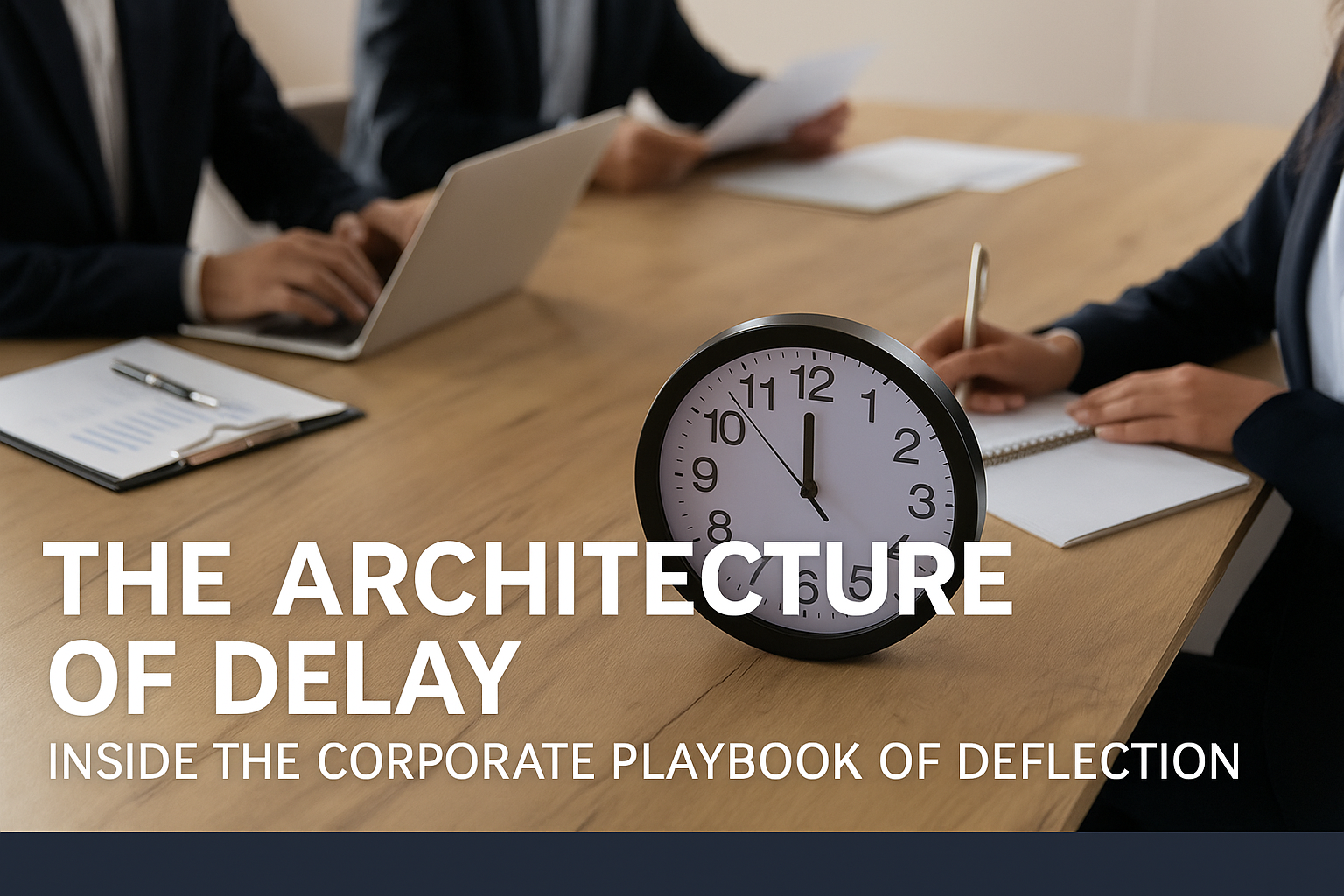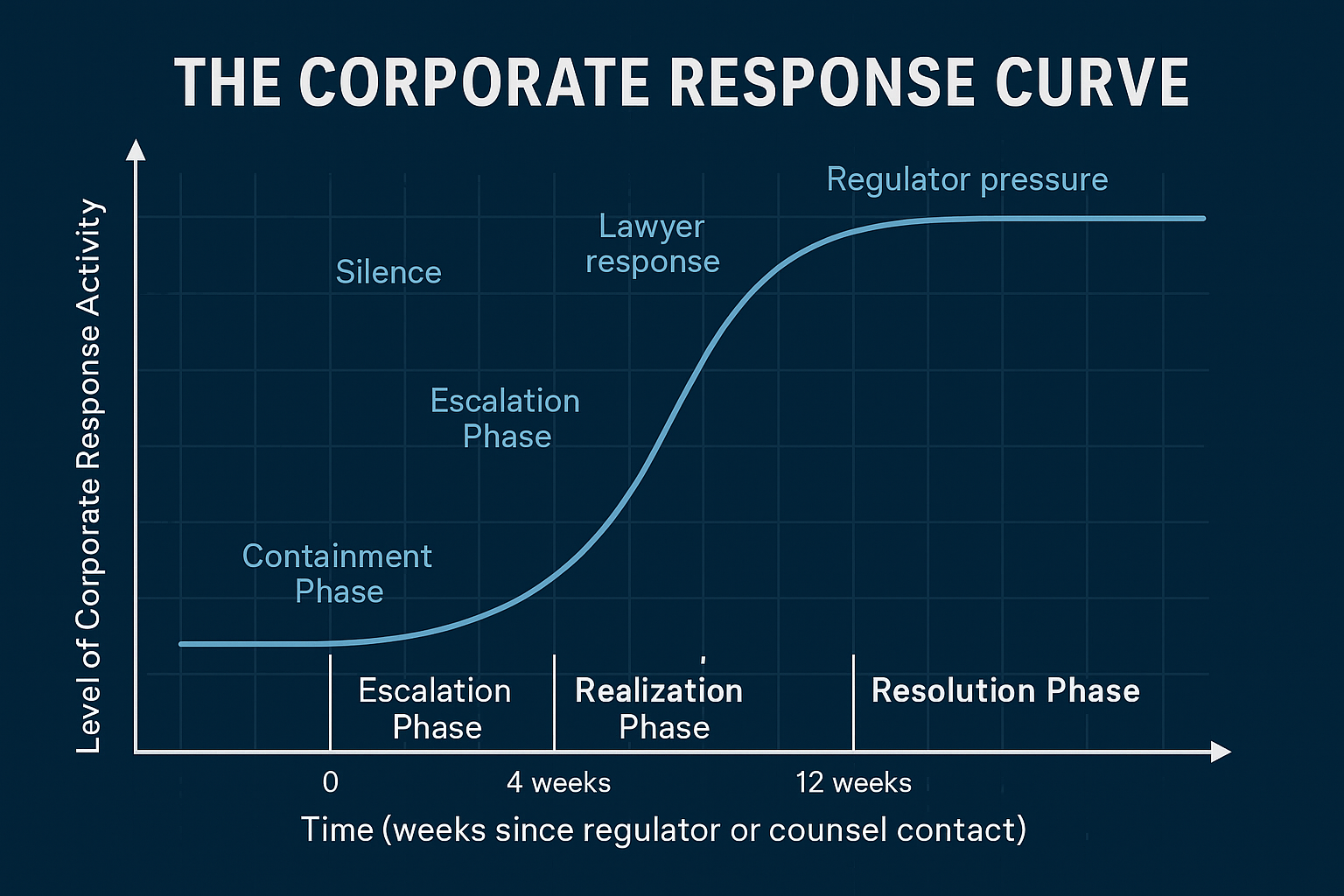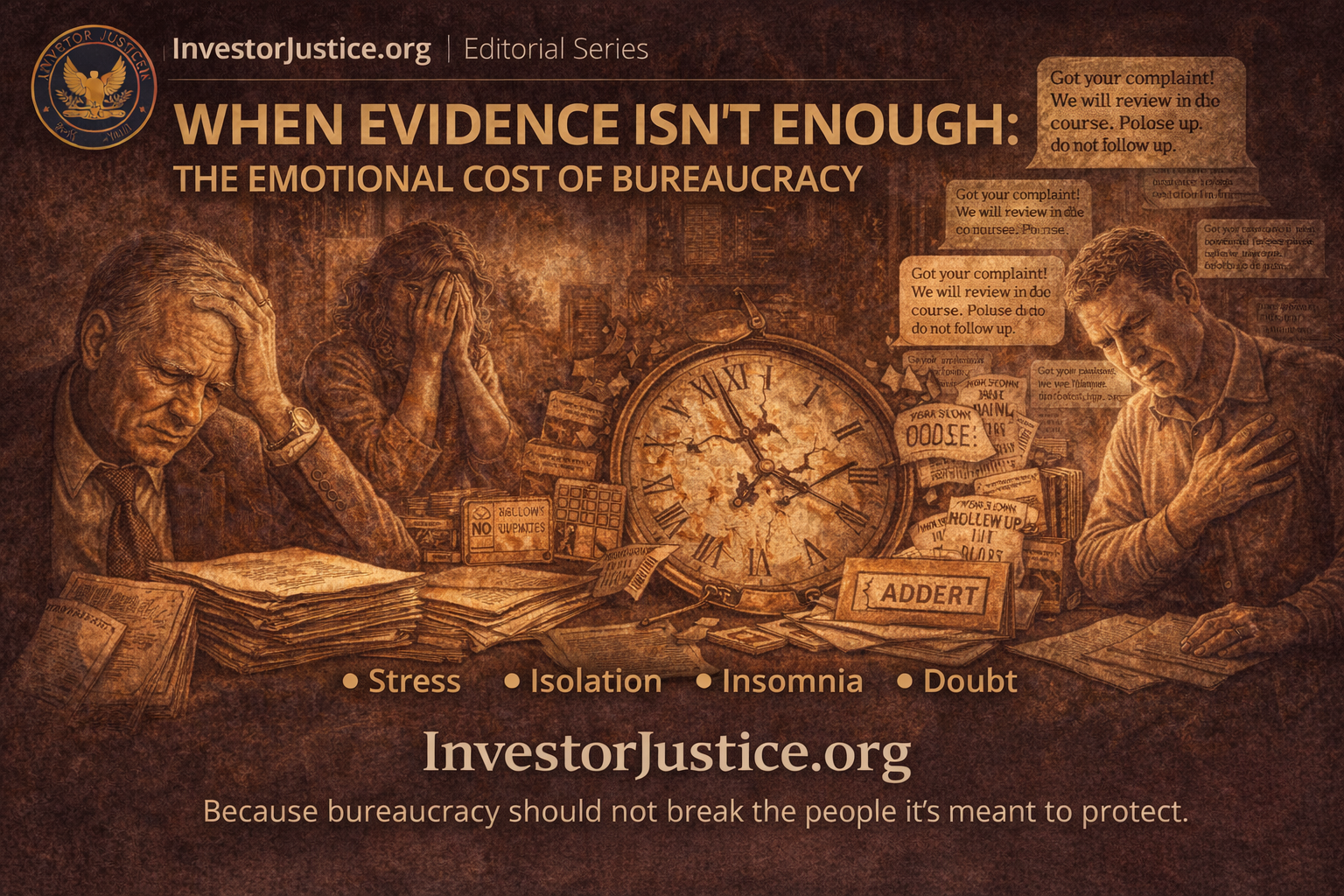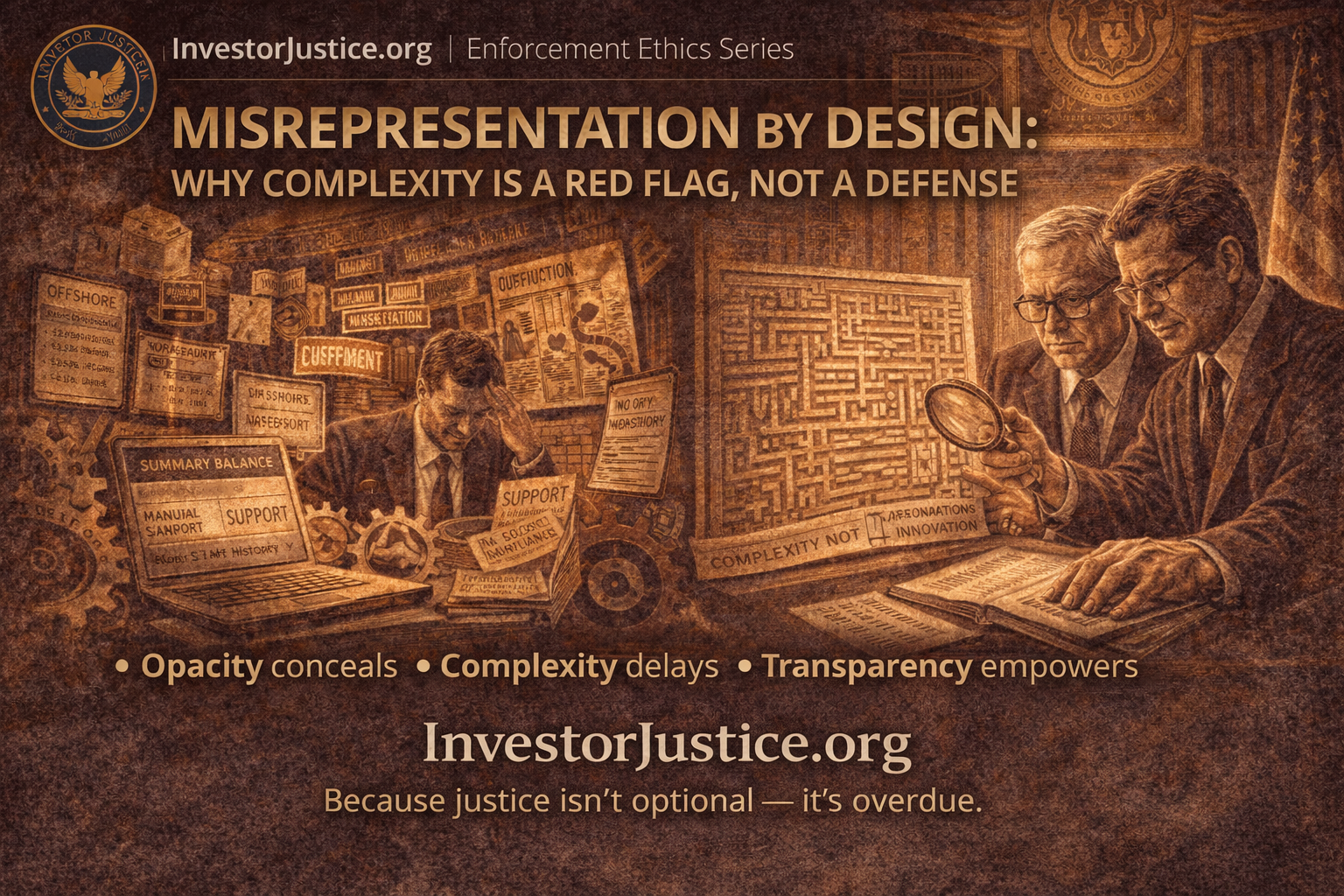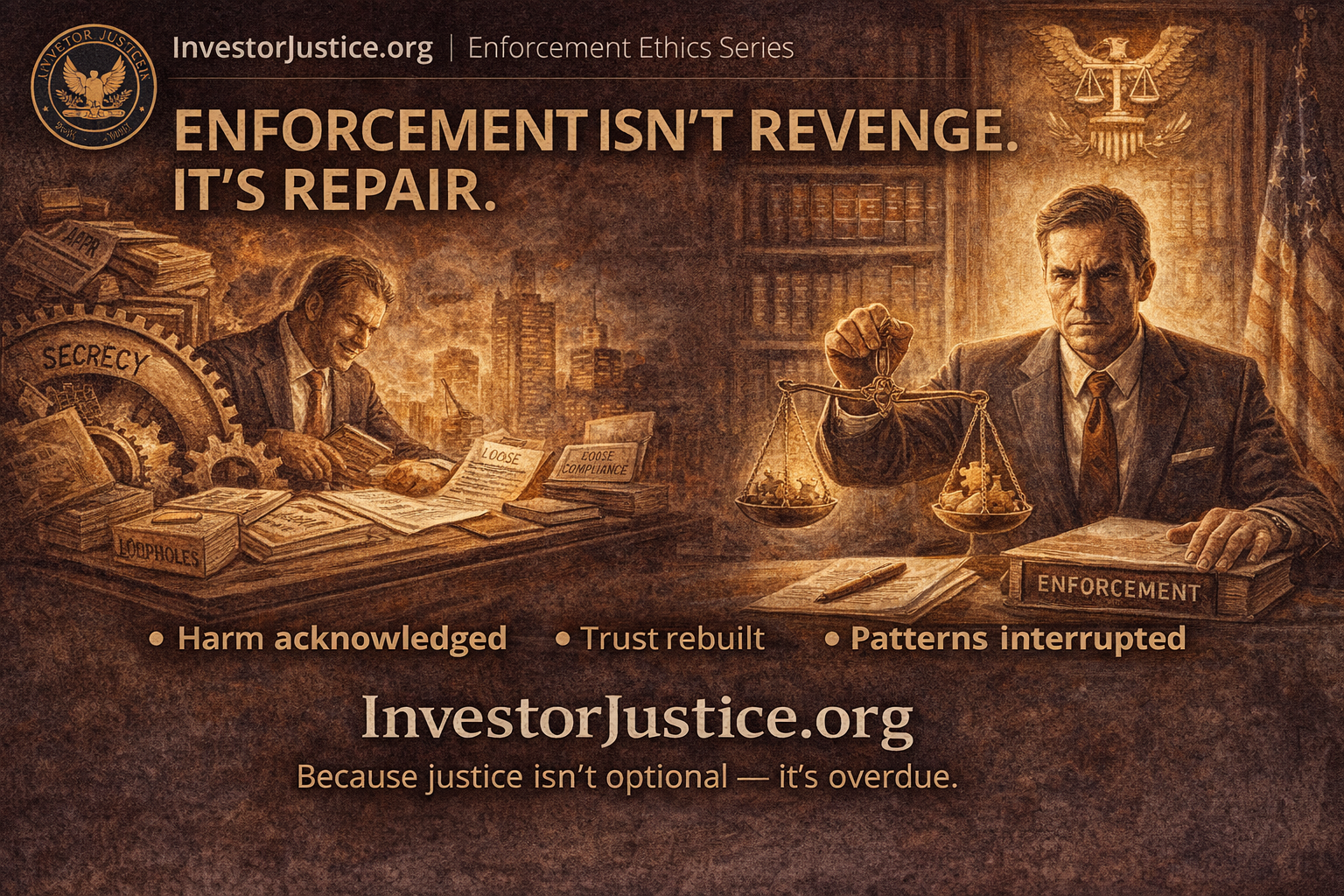Table of Contents
When Time Becomes a Tactic
In corporate crisis management, delay isn’t a byproduct, it is a strategy.
When accountability threatens to materialize, institutions deploy an entire toolkit designed to slow, diffuse, and exhaust those seeking answers.
Phrases like “under internal review,” “awaiting outside counsel opinion,” or “pending third-party audit” become not indicators of diligence, but instruments of deflection.
Delay is the modern corporation’s most cost-effective defense. It doesn’t require deceit; only time, complexity, and procedural mastery.
The Playbook of Deflection
Every major organization facing scrutiny follows a similar pattern; a choreography of containment refined over decades.
The tools of delay are not illegal, but they are profoundly effective:
- The Perpetual Review — Announcing a review signals responsiveness while freezing further inquiry. Reviews often span multiple departments, ensuring that no single party can be held accountable until the review concludes — if it ever does.
- The External Counsel Buffer — Invoking outside counsel introduces privilege, shielding critical documents and communications from disclosure. It creates distance between the company and the truth, converting factual investigation into legal chess.
- The Audit Mirage — Commissioning an audit projects integrity but can take months or years to complete, with findings often framed in language designed to soften accountability.
- The Procedural Labyrinth — Every request for documentation triggers new sub-processes; “verifications,” “internal sign-offs,” “policy consistency checks.” Each step buys more time, each delay erodes momentum.
The net result: by the time the public or a regulator receives a “final” response, the urgency, and often the evidence, has faded.
The Economics of Exhaustion
The corporate delay machine doesn’t just rely on process, it relies on psychology.
Most victims, journalists, or small regulators operate on finite resources.
Corporations, by contrast, operate on balance sheets.
Delay becomes a form of attrition: every unanswered email, every procedural detour, drains emotional and financial stamina.
Eventually, the truth becomes too expensive to pursue.
The Role of Counsel: Between Defense and Deception
Lawyers are trained to defend clients, not to deliver justice but the line between defense and deception grows thin when delay becomes habitual.
A culture that prizes “minimizing exposure” over “maximizing integrity” teaches counsel to weaponize time.
What begins as a legitimate right to due process morphs into a systemic shield against consequence.
Legal departments become time architects; building fortresses of plausible delay while the public forgets why the question mattered.
The Human Toll of Bureaucratic Stalling
For those harmed by corporate misconduct, the passage of time doesn’t dull pain, it amplifies it.
Lost savings, unresolved complaints, and unanswered filings become symbols of institutional indifference.
Each delay erodes not only trust in a single company but faith in governance itself.
When systems reward delay over disclosure, victims are left to wonder whether transparency was ever the goal.
Breaking the Clock
Accountability begins when time stops being a weapon.
Regulators, journalists, and advocacy groups can counteract delay by:
- Setting fixed disclosure deadlines with escalating enforcement.
- Requiring public progress updates for investigations.
- Imposing penalties for procedural non-responsiveness.
- Encouraging shared evidence repositories to prevent “lost” documents.
The solution isn’t speed for its own sake, it’s temporal integrity: ensuring that time serves truth, not strategy.
The Civic Lesson
The architecture of delay reveals a deeper truth about power: those who control the timeline control the outcome.
Investor Justice exists to expose these temporal tactics; to make delay visible, measurable, and defeatable.
Because justice postponed long enough becomes justice denied.

